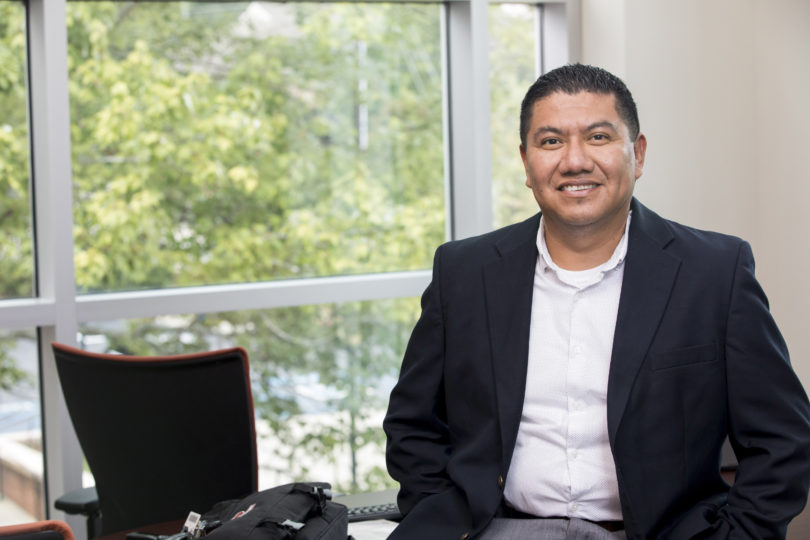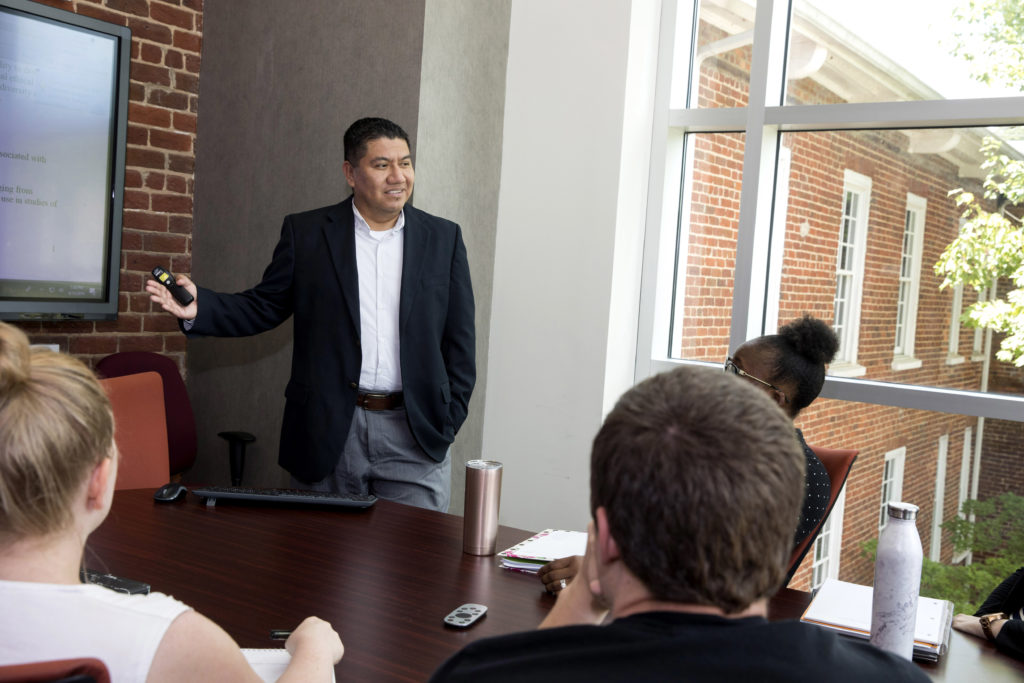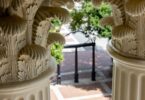Javier Boyas is an associate professor of social work who conducts research that seeks to eliminate health disparities, particularly those affecting the Latinx community.
Where did you earn degrees and what are your current responsibilities at UGA?
I received my baccalaureate degree in sociology and Spanish from Western Illinois University, my Master of Social Work degree from the University of Michigan at Ann Arbor and my Ph.D. from Boston College.
I am an associate professor in the UGA School of Social Work and currently serve as the Master of Social Work program director.
When did you come to UGA and what brought you here?
I came to UGA in August 2018. I was interested in this institution for several reasons. First, I have been intrigued with the population shift that has taken place in the South; the Latinx community has grown exponentially in Georgia and other Southern states since the 1990s. This shift had me wondering what life has been like for this population given that these areas have not been typical settlement communities for this population. Thus, I thought it would be ideal to investigate how “place” influences the overall well-being of the Latinx population.
The next two reasons are related. UGA is a land-grant institution, which provides a good academic home for housing my community-based research. This is enriched further by the fact that the School of Social Work has a great reputation of being committed to issues of social justice. That is something that is important for me as well. I could not think of anything better than to immerse myself in an academic community that shares that social justice value.
What are your favorite courses and why?
My favorite course to teach is “Quantitative Research Design” because it provides me the opportunity to train doctoral students to think about how to design quantitative investigations. I love going through the process of building a study from scratch and seeing how students use this process in a scaffolding manner to aid their research interests.
What are some highlights of your career at UGA?
I have been very fortunate since coming to UGA. One highlight is being named to the position of MSW program director. This is our largest academic program in the School of Social Work, and being asked to lead it is a major responsibility. However, this is also a tremendous opportunity provided to me that will allow me to shape, guide and lead this graduate program.
Another highlight has been helping doctoral students in the School of Social Work get involved in the peer-review publishing process. The doctoral students I worked with were able to participate in the many decisions that go into developing a manuscript that will be evaluated by research peers. I have been very fortunate in being able to mentor and support the next generation of scholars, which is an important aspect of becoming an academic and also a personal highlight.
How do you describe the scope and impact of your research or scholarship to people outside of your field?
My research areas can be broadly classified into two areas of study: exploring social determinants of health among communities of color and exploring how employment-based social capital is associated with employee psychosocial outcomes. My program of research aims to build knowledge that contributes to effective intervention and prevention approaches to reduce and ultimately eliminate health disparities among communities of color, particularly among the Latinx community. I try to carry out investigations whose results have an applied aspect to them. Personally, I believe research is more valuable when there is something meaningful that can have an impact on the populations and communities with whom we partner.
How does your research or scholarship inspire your teaching, and vice versa?
My research helps me contribute to the knowledge-base of the profession, which I bring into the classroom to use as examples. For me, staying current on my research allows me to provide students with the most up-to-date information. This process allows me to concurrently create and disseminate knowledge.
What do you hope students gain from their classroom experience with you?
I hope students understand that the social problems many populations encounter are complex. If we are ever going to solve these problems, how we think and assess the problems also will require a complex approach. I hope they gain an appreciation for the importance of interdisciplinary methods when trying to develop applied explanations to critical social problems and partner with folks in other disciplines to develop possible solutions.
Describe your ideal student.
My ideal student is someone who is inspired, proactive and self-motivated.
Favorite place to be/thing to do on campus is …
My favorite two spots on campus are Sanford Stadium on Saturdays and my office on campus. I enjoy watching the Dawgs play in front of the home crowd. I also enjoy my office space on campus because I can open my window and hear the rush of the North Oconee River.
Beyond the UGA campus, I like to …
… spend quality time with my family at home and the various cities we visit across the U.S. and abroad.
Favorite book/movie (and why)?
There are many books that I really enjoyed reading. However, my three favorite books are: “Hope in the Unseen,” “Rain of Gold” and “Hunger for Memory.” I found them to be important sources of inspiration in my early development and quest to become part of academia.
The one UGA experience I will always remember will be …
… getting a job offer to join a great group of scholars.









